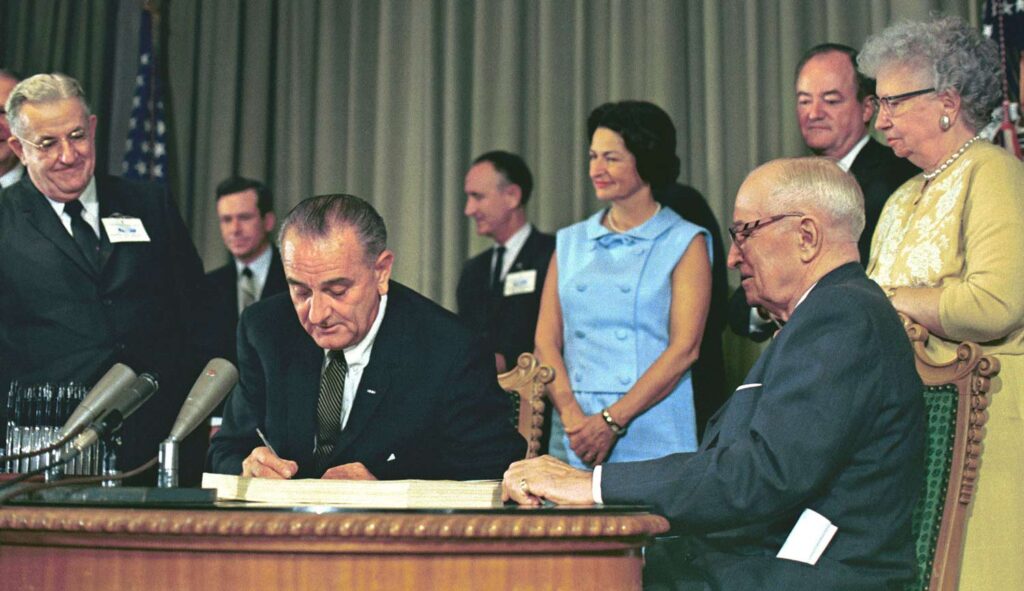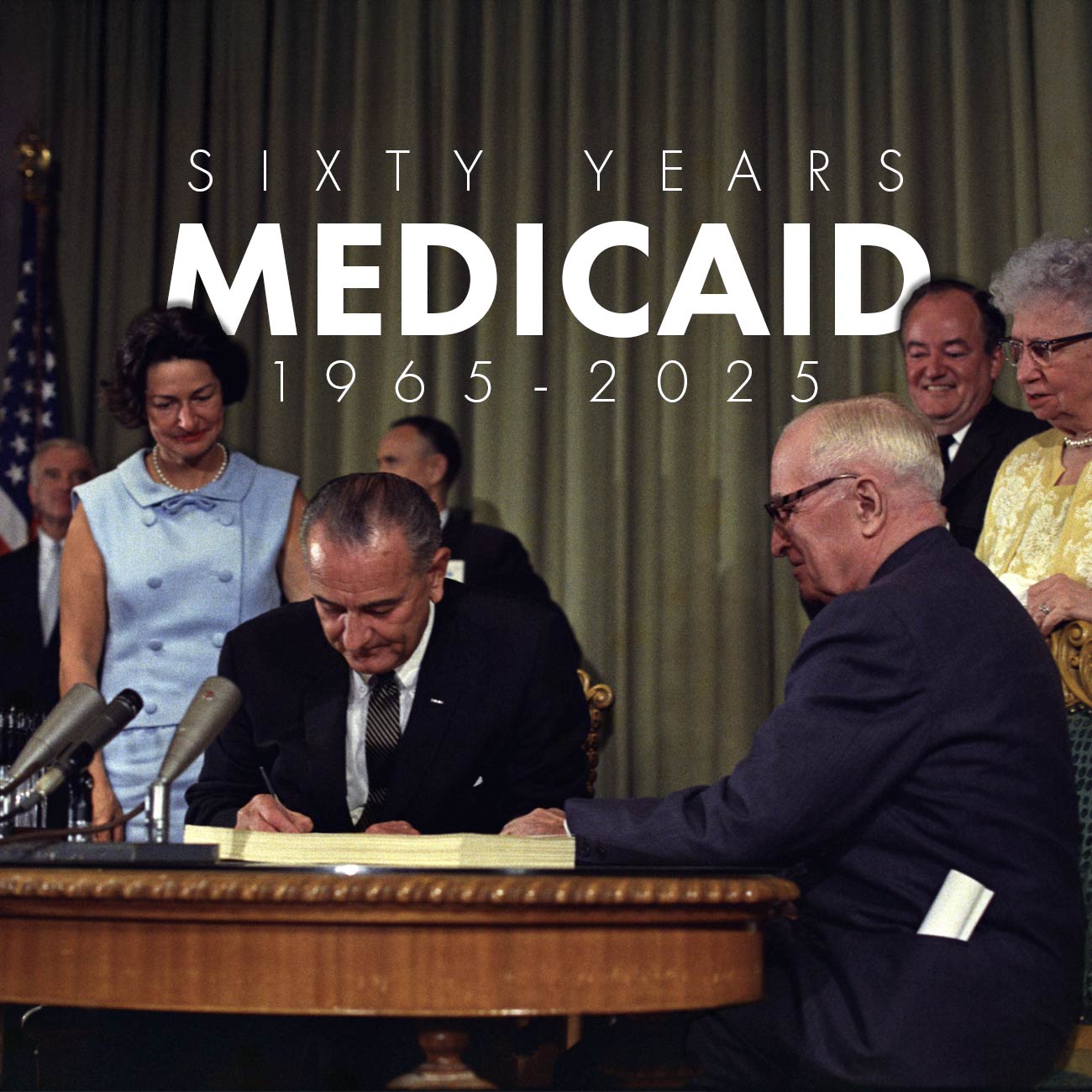Missouri holds a central role in the history of health care in the United States. Sixty years ago, on July 30, 1965, President Lyndon B. Johnson traveled to Independence, Missouri, to stand side-by-side with native son Harry S. Truman and signed the Medicare and Medicaid Act into law. This historic legislation, which passed Congress with overwhelming bipartisan support, provided health insurance coverage to millions of Americans who were previously left out: seniors over the age of 65 (Medicare) and low-income individuals and families (Medicaid). Together, these programs serve as the foundation of our health care system. Today, Medicare and Medicaid provide health insurance coverage to 144 million people, or more than 4 in 10 Americans. Two-and-a-half million Missourians rely on these programs.
Cuts to Medicare have long been considered a political “third rail,” with politicians reluctant to tamper with a program that is viewed favorably by 82% of Americans, including large majorities of Democrats, Independents, and Republicans. Medicaid, despite nearly equal popularity, with 77% support, hasn’t proven as invulnerable. The recently passed federal budget bill will extend the tax cuts passed during the first Trump administration and add more than $3 trillion to the national debt. It also slashes $1 trillion from Medicaid over the next 10 years, the largest cut in health care funding in history. Nearly 12 million Americans, and more than 130,000 Missourians, will lose their health care coverage.

These cuts threaten the very foundations of Medicaid and the health care safety net. More than 1.25 million Missourians, about half of them children, rely on MO HealthNet (Missouri’s Medicaid program) for preventive care, doctor and hospital visits, laboratory and diagnostic services, and prescription drugs. MO HealthNet covers services across the life spectrum, paying for nearly 4 in 10 births and two-thirds of nursing home care in the state.
Those covered by Medicaid are more likely to receive preventive care, get timely treatment for cancer and other serious illnesses, and fill their prescriptions than those without insurance. Medicaid serves as the leading payer for mental and behavioral health and family planning services. The program reduces racial, ethnic, and rural health disparities; enhances health; and lowers mortality.
Medicaid provides other benefits as well. It improves high school and college graduation rates. Children who are covered by Medicaid earn more and require less health care as adults. By eliminating catastrophic out-of-pocket medical costs, Medicaid reduces debt (a significant problem in Missouri) and lowers poverty rates for families.
The program also reinvests tax dollars into the economy, creating jobs and economic growth in Missouri communities and supporting rural hospitals and other health care providers. (A special rural health fund included in the budget bill will offset only a fraction of the losses that will be suffered by rural health providers – currently more than 20 rural Missouri hospitals are at risk of closure).
For 60 years, Medicaid has delivered a valuable return on investment by providing a safety net for low-income Americans and an economic engine for neighborhoods and communities. As we celebrate its anniversary in the face of cuts that threaten to roll back so much of the security it provides, it is instructive to remember the words of President Johnson in 1965:
“Few can see past the speeches and the political battles to the doctor over there that is tending the infirm, and to the hospital that is receiving those in anguish, or feel in their heart painful wrath at the injustice which denies the miracle of healing to the old and to the poor… There is another tradition that we share today. It calls upon us never to be indifferent toward despair. It commands us never to turn away from helplessness. It directs us never to ignore or to spurn those who suffer untended in a land that is bursting with abundance.”
Medicaid is not “waste, fraud, and abuse.” It is not intended to separate the “deserving” from the “undeserving.” Medicaid is a vital lifeline for Missourians in their times of greatest adversity or misfortune. It has survived the political ups and downs of the past six decades largely intact. If we are unable to reverse course, the catastrophic reductions that we make today will lead to a sicker, less prosperous country tomorrow.
In the coming months, MFH will assess the future impacts of these dire cuts, inform the public and policymakers of their significance, and work with partners across the state and the nation to rebuild this critical program.




